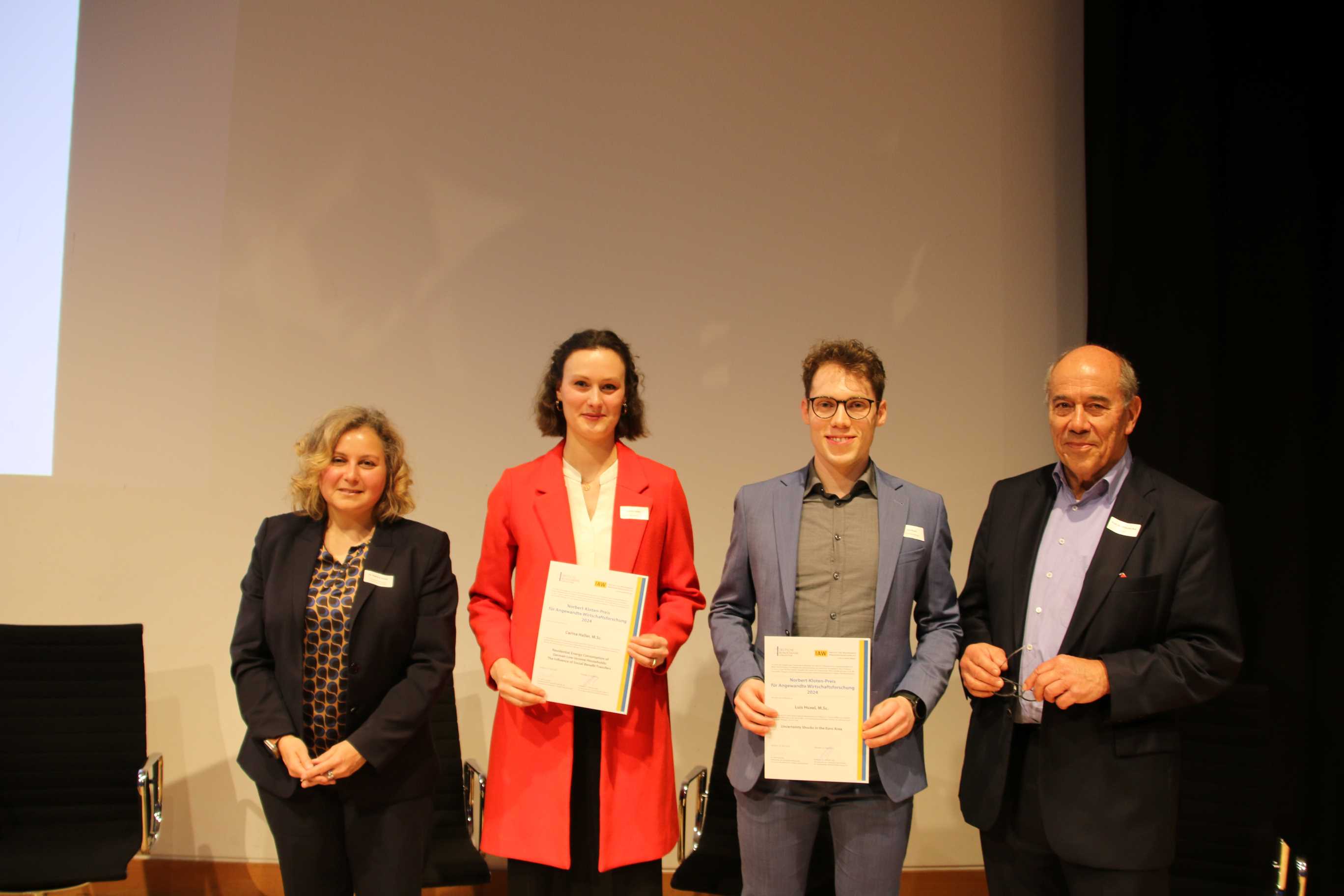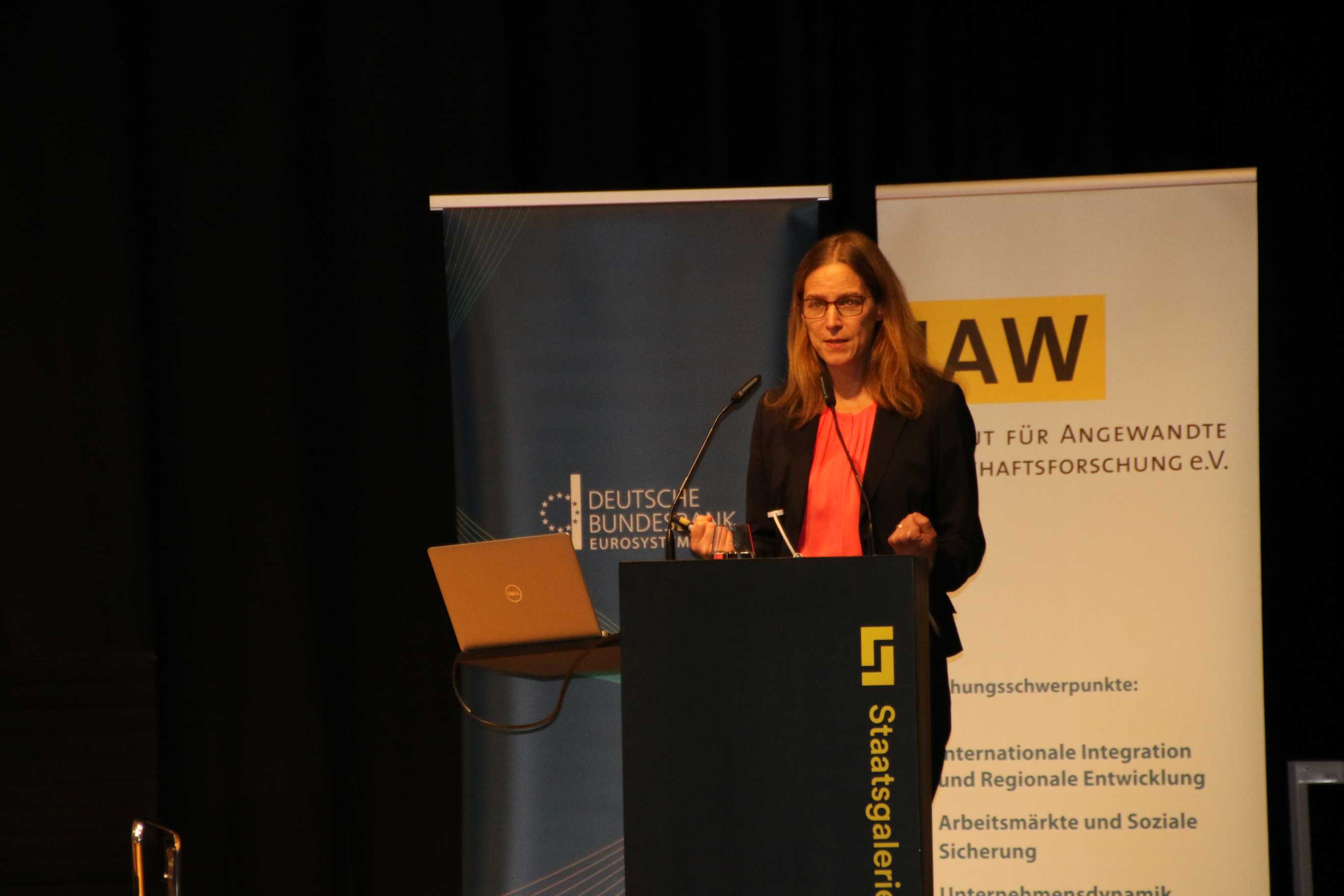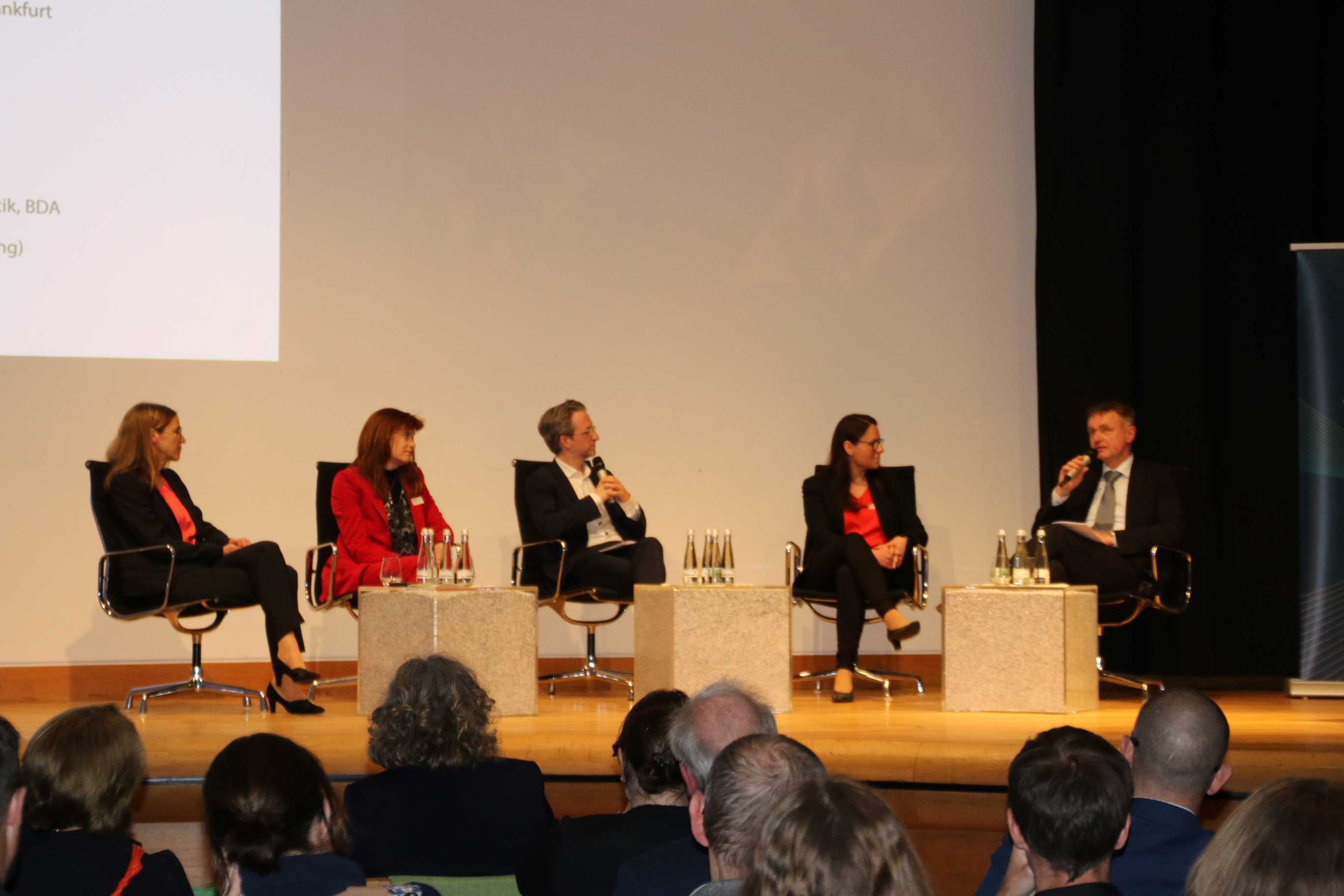Award of the Norbert Kloten Prize for Applied Economic Research 2024
Carina Haller, M.Sc., Residential Energy Consumption of German Low-Income Households: The Influence of Social Benefit Transfers
Master's thesis with Prof. Dr. Martin Biewen at the Chair of Statistics, Econometrics and Quantitative Methods at the Faculty of Economics and Social Sciences at the Eberhard Karls University of Tübingen
Luis Huxel, M.Sc., Uncertainty Shocks in the Euro Area
Master's thesis with Prof. Dr. Gernot Müller at the Chair of Money and Currency at the Faculty of Economics and Social Sciences of the Eberhard Karls University of Tübingen

Photo: Deutsche Bundesbank
From left to right: Dr. Patricia Staab, President of the Head Office of the Deutsche Bundesbank in Baden-Württemberg, Carina Haller, Luis Huxel, Professor Dr. Wilhelm Rall, Chairman of the Board of IAW e.V.
Lecture:
Gender equality in the labor market - scientific evidence and political options for action.

Photo: Deutsche Bundesbank
Prof. Dr. Dr. h.c. Nicola Fuchs-Schündeln, Chair of Macroeconomics and Development at the Department of Economics at Goethe University Frankfurt a.M.
Panel discussion:
Gender equality in the labor market - Where do we stand and what options does politics have?

Photo: Deutsche Bundesbank
Prof. Dr. Dr. h.c. Nicola Fuchs-Schündeln, Goethe University Frankfurt a.M.
Dr. Nicola Brandt, Head of the OECD Berlin Centre
Dr. Claudia Holtschlag, HR Analytics & Transformation Manager, Vodafone
Roland Wolf, Managing Director and Head of the Labor Law and Collective Bargaining Policy Department, BDA
Moderation: Johannes Pennekamp, Frankfurter Allgemeine Zeitung